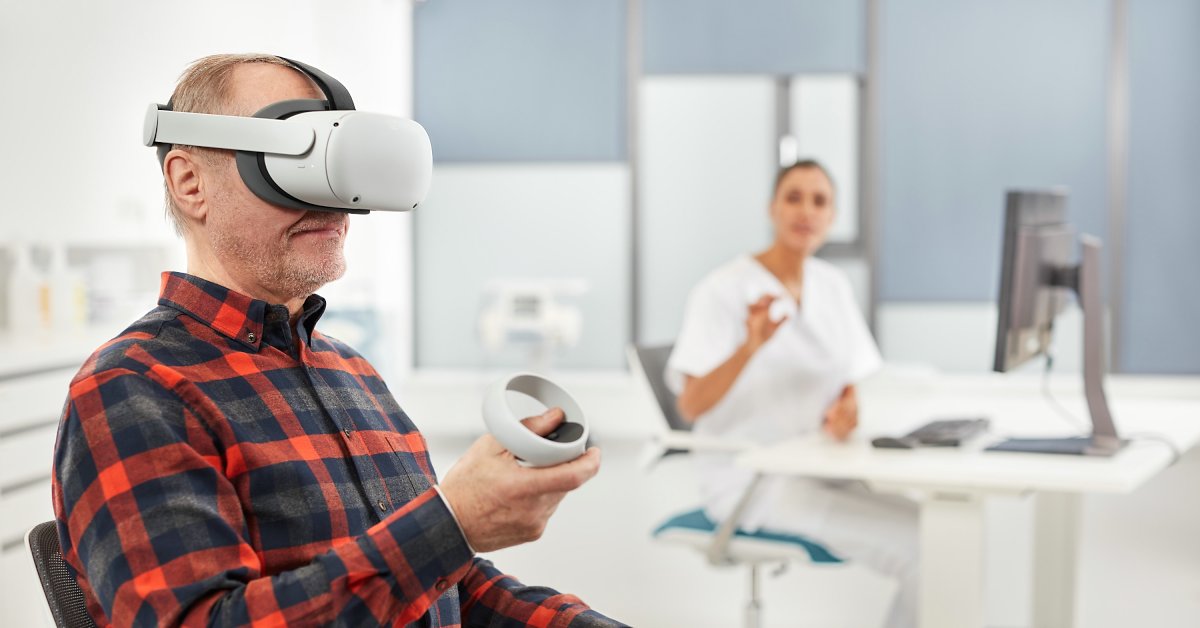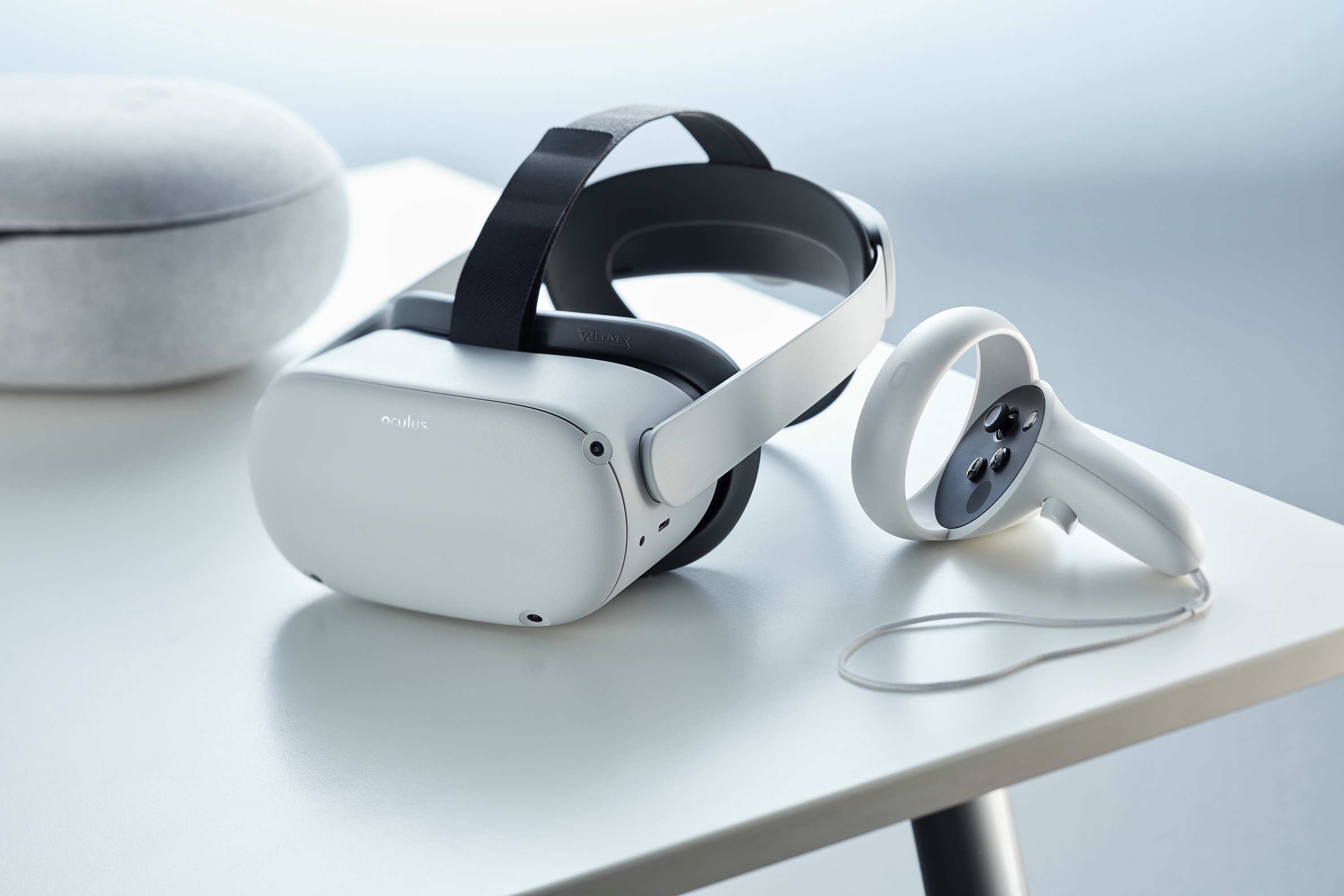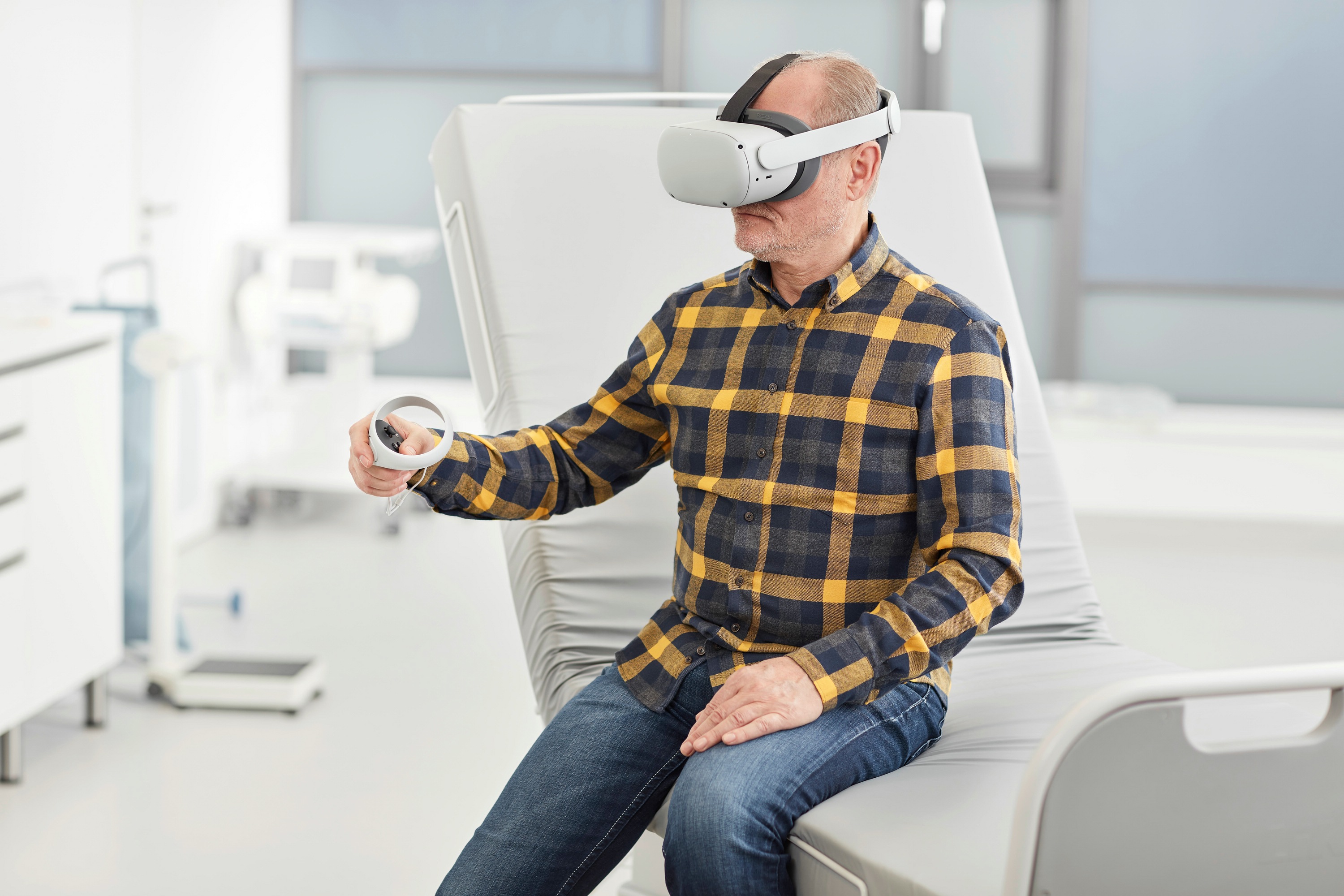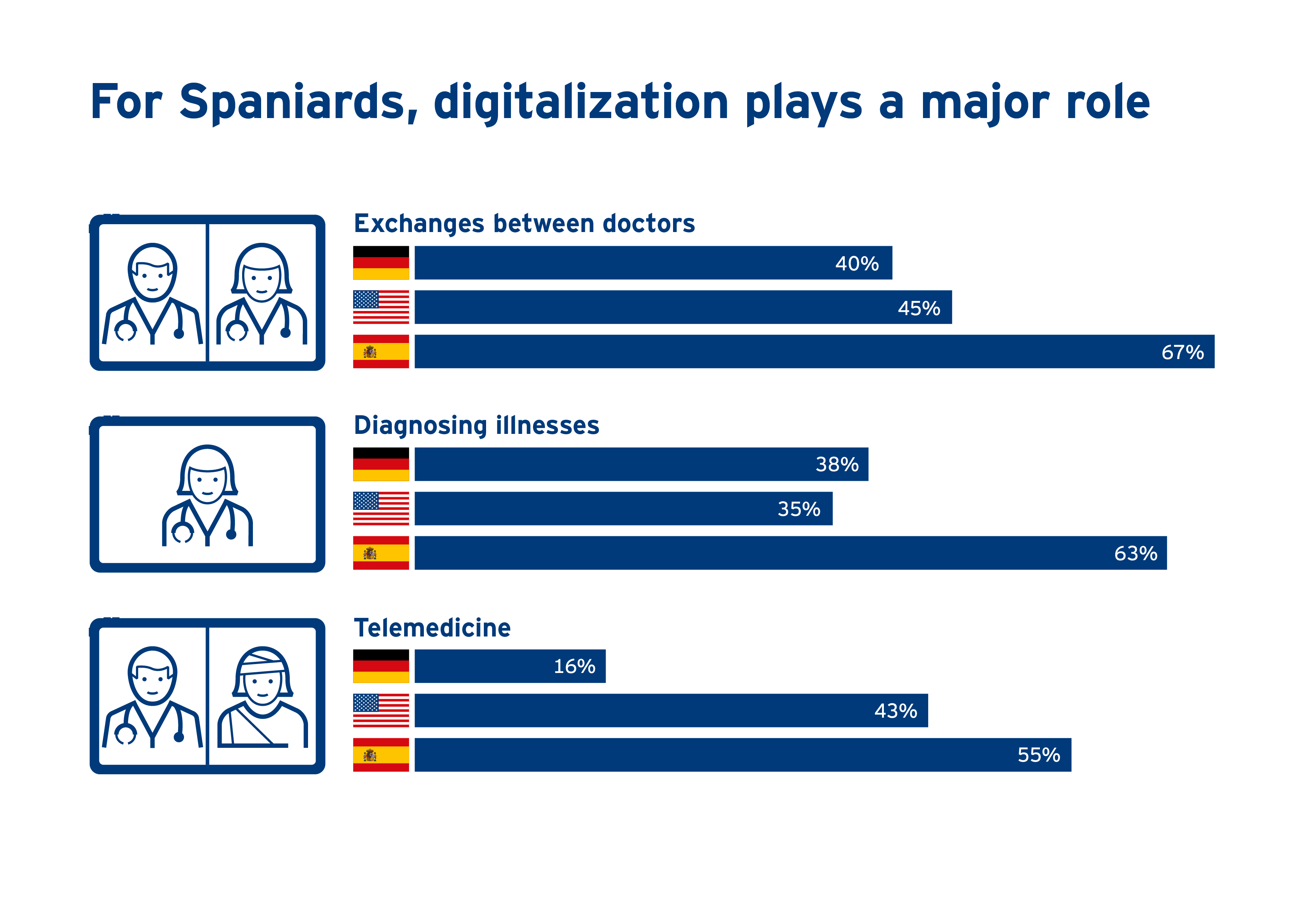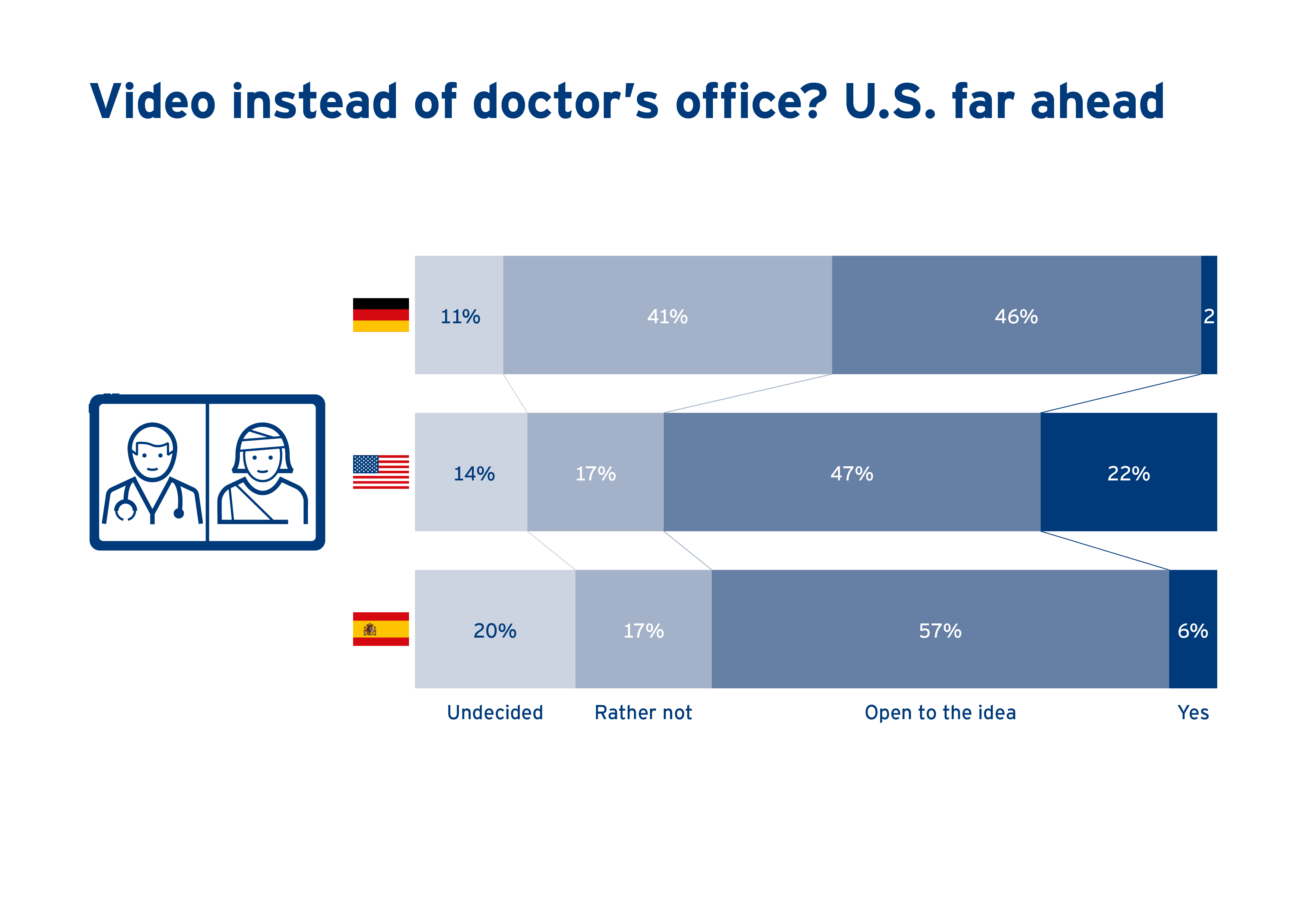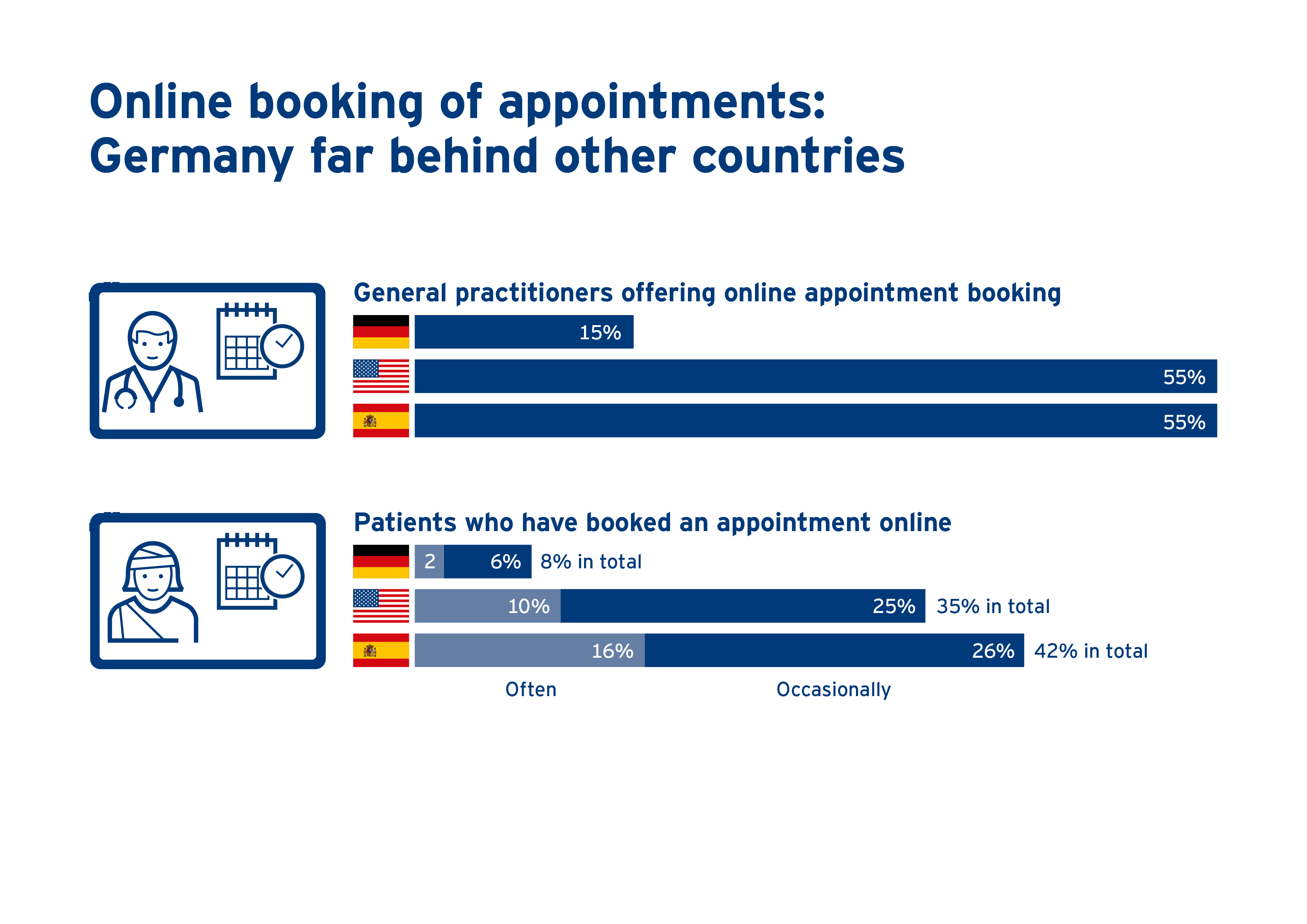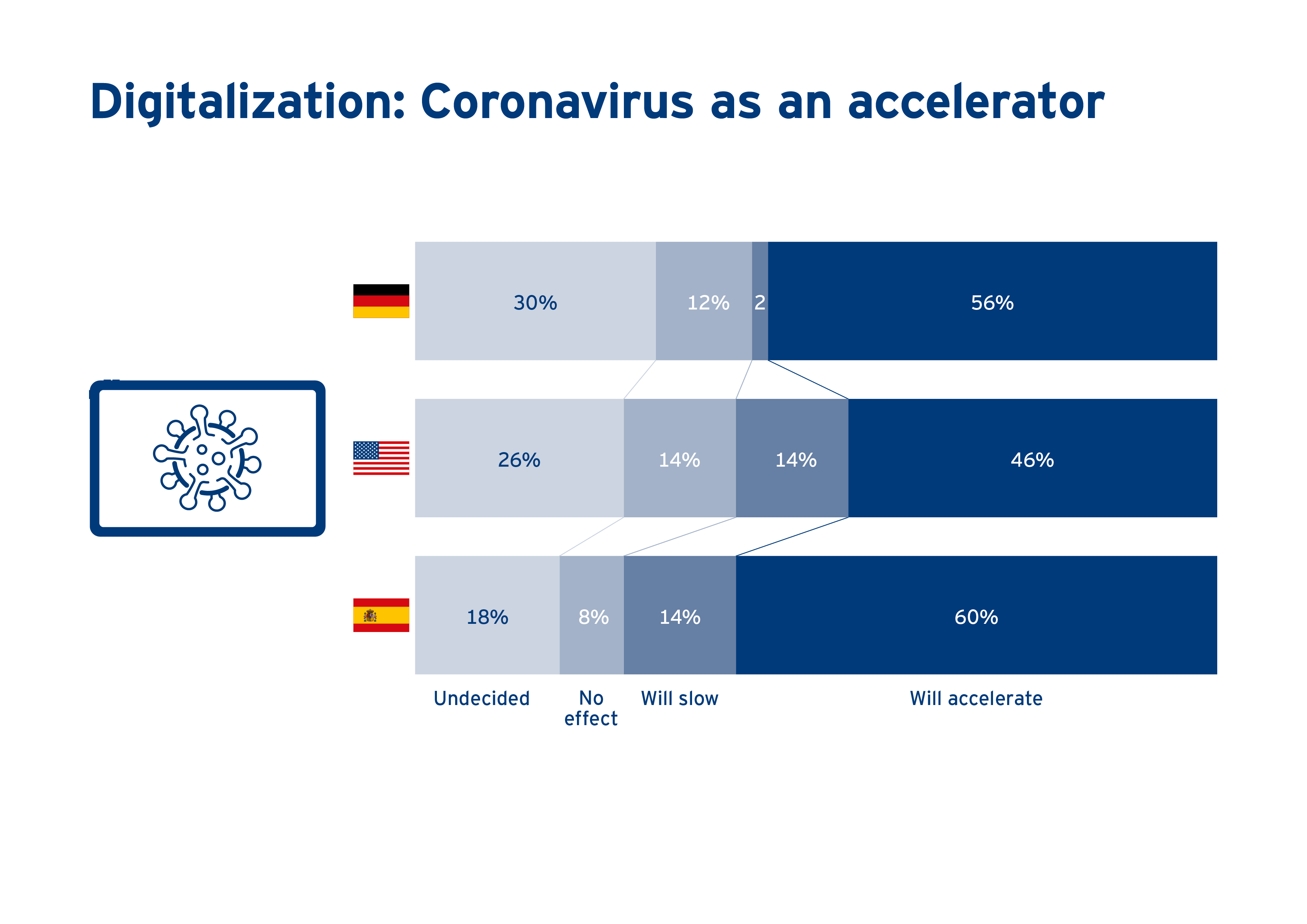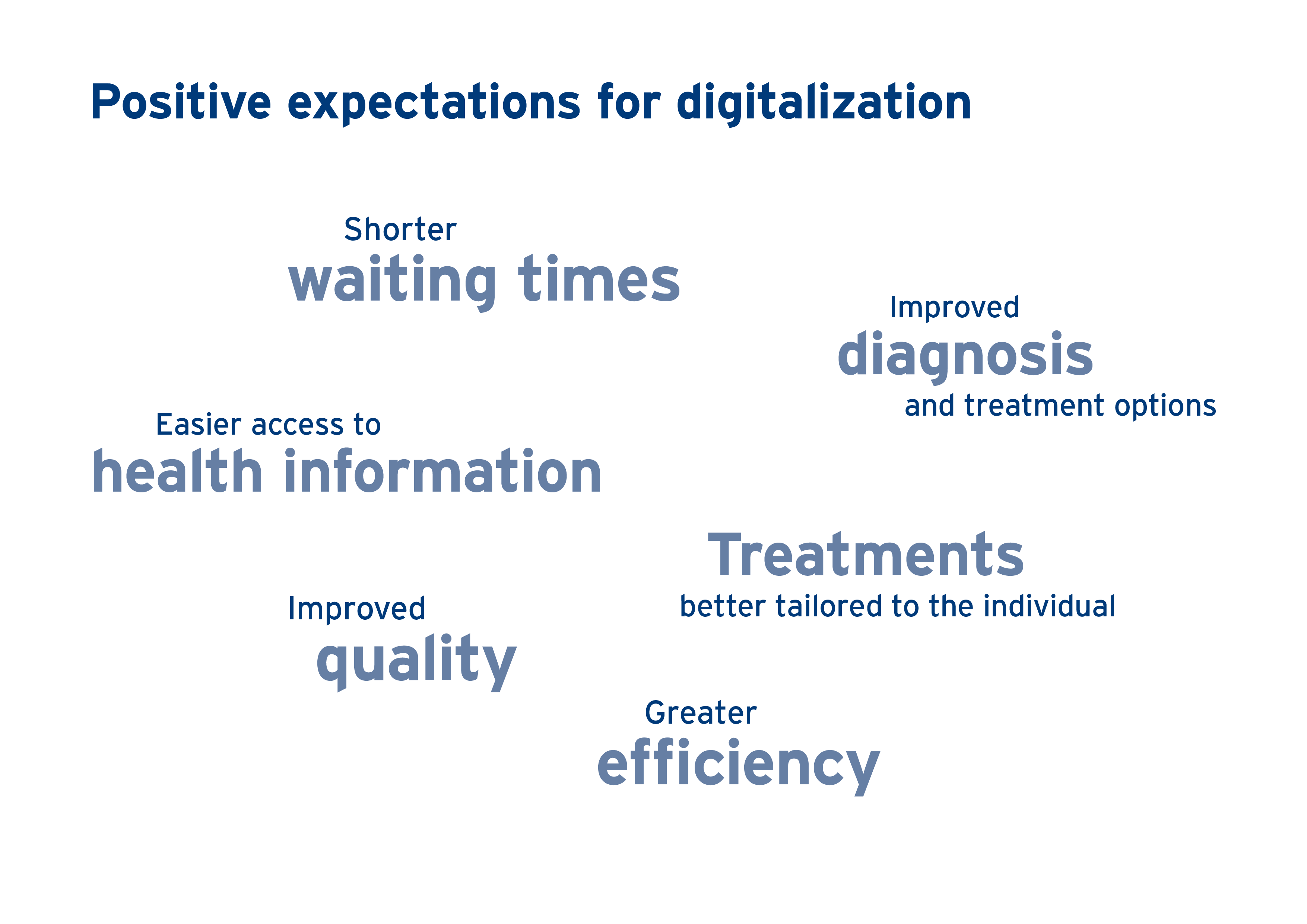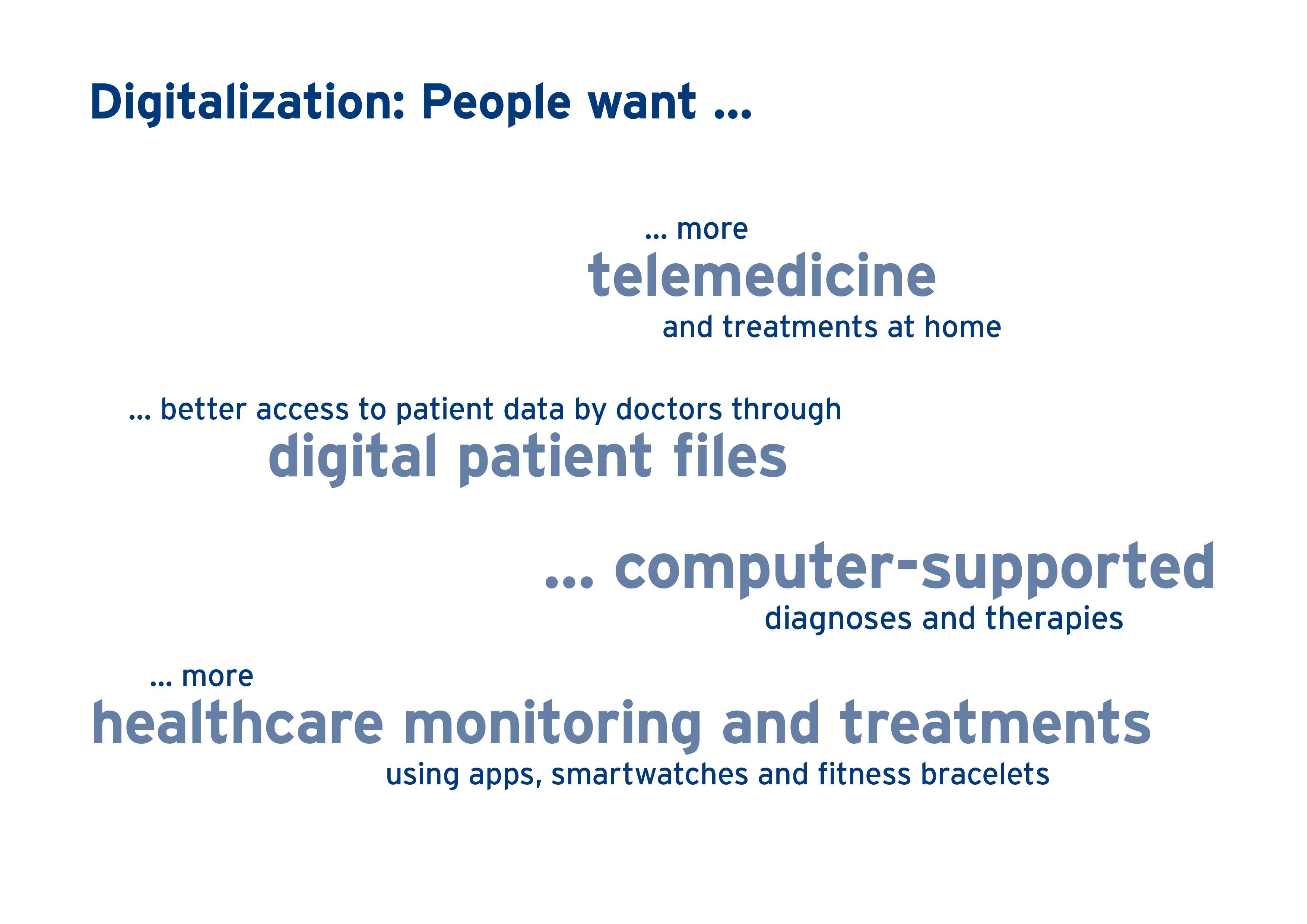Fresenius Medical Care, the world’s leading provider of products and services for individuals with renal diseases, has started using virtual reality (VR) technology to train patients to perform peritoneal dialysis. The stay•safe MyTraining VR is being offered first in Germany and will be extended to other countries in the company’s Europe, Middle East and Africa region later this year.
In peritoneal dialysis, which is used by about 11 percent of the approximately 3.7 million dialysis patients worldwide, the lining of the patient’s abdominal cavity – the peritoneum – acts as the filter for cleaning the blood. To learn how to correctly use Fresenius Medical Care’s stay•safe System for continuous ambulatory peritoneal dialysis (CAPD), home dialysis patients undergo comprehensive training in a dialysis clinic. stay•safe MyTraining VR is now supporting this training with the VR technology. The hardware comprises VR glasses and an easy-to-use controller. In various training modules, patients learn all aspects of the dialysis process, including hygiene procedures, preparation and post-therapy steps, bag-changing and operation of the stay•safe DISC.
Each training module can be adjusted to the patient’s own pace and repeated as often as needed until the patient has mastered it. While the patient trains, the nursing personnel can focus on other important tasks, for example by simultaneously assisting several other patients.
“The VR training appeals to several of the patients’ senses and this makes it especially easy to learn new procedures,” said Christoph Hame, Nursing Manager at NephroCare Germany, the service division of Fresenius Medical Care. “The VR glasses block out outside stimuli, so the patients stay focused. They can move around in the virtual room and reach for things. With this playful learning, the content is held better in the memory. Also, the standardized learning units make the training more secure, because the contents are imparted in the same way in every dialysis clinic. We offer the training in different languages, and can therefore overcome language barriers.”
The stay•safe MyTraining VR is aimed at both new and experienced home dialysis patients, who regularly update their knowledge at monthly check-ups. Patients can also be more easily included in the process of deciding which form of therapy is best for them. With the use of the VR glasses they can even learn how to handle the stay•safe System before the implantation of a catheter, which is required for the treatment.
“We want to make home dialysis possible for ever more patients,” said Dr. Katarzyna Mazur-Hofsäß, Fresenius Medical Care’s Chief Executive Officer for Europe, Middle East and Africa. “Part of this is preparing them and their family members for the challenges and changes that come along with it. With the VR training we are doing exactly that. Patients, their family members and care partners can be familiarized with the usage in a very practical, impactful way. This lowers their inhibitions and helps them with the decision on whether peritoneal dialysis at home is right for them. And it contributes to the design of home therapy that is sustainably patient-friendly and safe.”
The stay•safe MyTraining VR and the VR goggles themselves are not a medical device, but were created to support CAPD training. The training demonstrates the use of the stay-safe system. The stay•safe system for CAPD treatment includes the PIN and DISC elements and the associated peritoneal dialysis solutions.
This release contains forward-looking statements that are subject to various risks and uncertainties. Actual results could differ materially from those described in these forward-looking statements due to various factors, including, but not limited to, changes in business, economic and competitive conditions, legal changes, regulatory approvals, impacts related to the COVID-19 pandemic results of clinical studies, foreign exchange rate fluctuations, uncertainties in litigation or investigative proceedings, and the availability of financing. These and other risks and uncertainties are detailed in Fresenius Medical Care AG & Co. KGaA's reports filed with the U.S. Securities and Exchange Commission. Fresenius Medical Care AG & Co. KGaA does not undertake any responsibility to update the forward-looking statements in this release.
- Major differences in levels of development: Spain leading the way
- Digitalization as a great opportunity: People want telemedicine, networking between their doctors and better diagnostics
- Fresenius active in digitalization: initiatives in all business segments
Germany still lags far behind other countries in the digitalization of medicine, with Spain in particular but also the United States significantly ahead in several areas. This finding comes from a representative poll conducted for Fresenius in Germany, Spain and the U.S. by the polling organization Allensbach Institut für Demoskopie. The poll also found that Germans are increasingly interested in digital services such as telemedicine.
The respondents in all three countries agreed that digitalization is, on balance, an opportunity for medicine. There is also cross-national agreement that the pandemic is acting as an accelerator of digitalization in the healthcare sector.
"People increasingly understand that digitalization brings great benefits to healthcare," said Stephan Sturm, CEO of Fresenius. "This is good news, because the success of digital applications depends to a large extent on their acceptance. For Fresenius, digital healthcare is a key growth area and part of our strategy for the coming years. Digitalization offers great potential to provide our patients with even better care, and more efficiently than ever before. High medical quality that is affordable – this is and remains the basis of our success."
Germany lags in digitalization, with Spain far ahead
Spain is leading the way when it comes to digitalization. Well over half of Spanish respondents said the digitalization of medicine is already playing a major role in the networking of healthcare facilities, diagnosing illnesses and telemedicine. This is most apparent in telemedicine, where patients come into very direct contact with digitalization: 55 percent of Spaniards and 43 percent of Americans, but only 16 percent of Germans, consider telemedicine highly important.
This is also reflected in usage: While 22 percent of Americans have used the option of a video consultation, the corresponding figure for Germans is only 2 percent. And although 46 percent of the population in Germany would agree in principle to consult a doctor via video, Spaniards (57 percent) and Americans (47 percent) are even more open to the idea.
Although interest in telemedicine is also growing in Germany, age is an important factor in attitudes: While two-thirds of people under 30 and half of those in the 30-to-44 age group could imagine a virtual doctor's visit, only one-third of over-60s could; for more than half of people 60 or older, a video consultation would be out of the question.
There are major differences even in the simplest digital offerings in the medical field, such as online appointment booking. In Germany, for example, only 15 percent of respondents said they can book an appointment with their general practitioner online, compared with 55 percent in both the U.S. and Spain. Accordingly, user rates are far apart: in Germany, only 8 percent of people have made an appointment with their GP online; in the U.S. and Spain the corresponding figures are 35 and 42 percent.
Accelerated by the pandemic: Digitalization of medicine as an opportunity
There is broad agreement among respondents in all three countries that the coronavirus crisis is accelerating the digitalization process in medicine: 46 percent of the U.S. population, 56 percent of Germany’s and 60 percent of Spain’s share this opinion.
According to significant numbers of the respondents, this increase in digitalization tends to offer opportunities for the healthcare sector: 49 percent in Spain, 34 percent in Germany and 32 percent in the U.S. think digitalization is likely to have more benefits than drawbacks for the healthcare sector.
People in the three countries also associate digitalization with a range of positive effects for healthcare. For Germans, the greatest advantage by far is a simplified exchange between doctors, but they also see major benefits from easier access to health information and in improved diagnosis and treatment options: 47 percent expect that therapies could be better tailored to the individual, and 35 percent that treatment options will improve generally.
Americans do not rate the advantages of digitalization for the healthcare system much differently than do Germans. But Spaniards do: Above all, they expect shorter waiting times, cost savings through greater efficiency and an increase in healthcare quality as particularly positive effects.
The populations in the three countries are closely aligned in terms of which developments they consider to be welcome. Above all, the introduction of digital medical records, the expansion of telemedicine services and the use of patient data for diagnosis are considered desirable by large parts of the German, Spanish and U.S. populations. Around a third of people in all three countries consider it desirable that increasingly more personal health data is recorded with the help of apps, smartwatches and fitness bracelets.
Fresenius on trend with many digital applications
The survey’s results on what respondents consider as desirable developments confirm the digitalization initiatives that all business segments of Fresenius have been advancing for years. On one hand, these aim at getting closer to patients, for example by better integrating them into preventive care and therapies; on the other hand, numerous applications help medical professionals to achieve even better treatment results still more efficiently and safely.
Fresenius Helios: Digital monitoring of the entire treatment journey as a goal
With its digital patient portal, Fresenius Helios is a pioneer in the German healthcare market. About every second Helios hospital already allows its patients to access treatment documents, book appointments online and have video consultations from home. By 2022, other medical data such as nursing documentation and medication records will also be available in a digital patient file. Almost 3 million users are already accessing the Helios Spain portal; almost all of Helios' Spanish hospitals are connected to it.
In numerous Helios Germany hospitals, nursing staff also receive digital support directly at the bedside: A patient’s temperature, blood pressure and other vital signs are entered into a so-called spot check monitor and then transferred directly from it to an electronic patient file. These solutions are to be in use at all Helios Germany hospitals by the end of 2022.
The digital patient file with doctors’ letters, test results and the complete clinical imaging is available at almost every workplace in the hospital. It brings great advantages in prescribing medication, because electronic prescriptions can be clearly assigned and tracked by all involved parties, such as doctors’ practices and pharmacies; they can also be transferred digitally. Integrated software solutions provide a warning when there are possible interactions with other medications, which increases patient safety.
On the topic of telemedicine: All Fresenius Helios healthcare facilities have the technical capability to set up consultations via video, and some already offer these consultations on a regular basis. Helios Germany has also started online consultations in the pre-ambulatory area.
In the future, Helios will be able to digitally accompany patients throughout their entire treatment journey – whether they are staying in hospital or being treated as an outpatient.
Fresenius Medical Care: Home dialysis, networking and targeted therapies
Home dialysis is becoming increasingly popular, especially in the U.S., and it is important here that there can be close, remote monitoring of patients' health data. Fresenius Medical Care offers a cloud-based connected health home solution for patient management, including remote monitoring of ¬dialysis, management of treatment processes¬, the creation of personalized prescriptions and daily treatment reports to the responsible medical professionals.
In the U.S., Fresenius Medical Care’s connected healthcare platform, “TheHub,” connects patients with care teams and providers using an app: It was launched in late 2019 and in 2020 documented more than 1.7 million sessions. The company has similar solutions in use in numerous countries in Europe, Africa, the Asia-Pacific region and Latin America; beyond the home dialysis setting, the digital solutions are also offered in-center and in critical care.
Fresenius Medical Care is increasingly focusing on the analysis of aggregated and anonymized patient data with the focus on improving patient outcomes. With the help of artificial intelligence and machine learning techniques, the probable progressions of a disease can be modeled in advance in order to develop the best possible therapies and avoid expected complications. For example, the risk of a cardiovascular event can be assessed at an early stage – before it becomes life-threatening.
Fresenius Kabi: Providing security to patients and caregivers
Fresenius Kabi promotes patient empowerment through apps for therapy advice and support, follow-up care and interaction with healthcare professionals. For example, the company supports patients receiving clinical nutrition through digital platforms for nutrition management, and offers a special app that helps patients with chronic kidney failure with their diet plan.
In addition, the company operates a digital patient platform for biosimilars to advise and educate patients about this type of pharmaceuticals. It will be extended to other therapeutic areas. The data from these applications will be used in the future to analyze treatment results, predict risks and facilitate therapy decisions.
Especially for hospitals, Fresenius Kabi offers digital solutions to support the correct medicating of patients and increase safety and treatment quality. Fresenius Kabi also ensures the integration of patient-related devices into hospital information systems to holistically manage and monitor the health status and treatment of critically or chronically ill patients.
For its own drugs, Fresenius Kabi introduced so-called RFID smart labels in the U.S.; these enable hospitals to automatically identify, locate and manage their inventory.
Fresenius Vamed: Telerehabilitation, predictive maintenance and digital planning of healthcare facilities
Fresenius Vamed makes rehabilitation and aftercare services for patients largely accessible and barrier-free with digital solutions. Thanks to telemedical offerings, services can be provided more flexibly and from any location.
In the area of technical services, Fresenius Vamed has developed digital solutions for predictive maintenance. By optimizing maintenance and servicing, they help secure the reliability and dependability of technical equipment and systems in healthcare facilities.
In the project business, Fresenius Vamed uses digital solutions – so-called building information modeling (BIM) concepts – to simulate and optimize the entire life cycle (planning, development, construction and operation) of a healthcare facility during the planning phase.
Curalie: platform open to third parties for digital health services
Whether cardiological diseases and health risks, diabetes, renal insufficiency, high blood pressure, obesity or orthopedics: In many areas, the Fresenius subsidiary Curalie offers fully digitized solutions for the treatment of chronically ill patients.
The Curalie digital health platform enables the integration of devices, video calls and chats, referrals to the hospital information system, treatment plans and real-time analyses. Another focus of the health application is on preventive care offerings. Together with medical experts, Curalie develops digital health promotion programs for employers and their employees.
Curalie’s “OP Begleiter” (surgery companion) program prepares patients for their hospital stay and surgery. It starts up to three months before the operation and contains the most important information, helpful checklists and relaxation and physiotherapy exercises to prepare the patient holistically for their operation.
Curalie is also developing digital services for rehabilitation and aftercare. Tele-rehabilitation aftercare, for example, takes place directly after rehabilitation measures, and supports patients as they flexibly pursue remaining therapy goals from home.
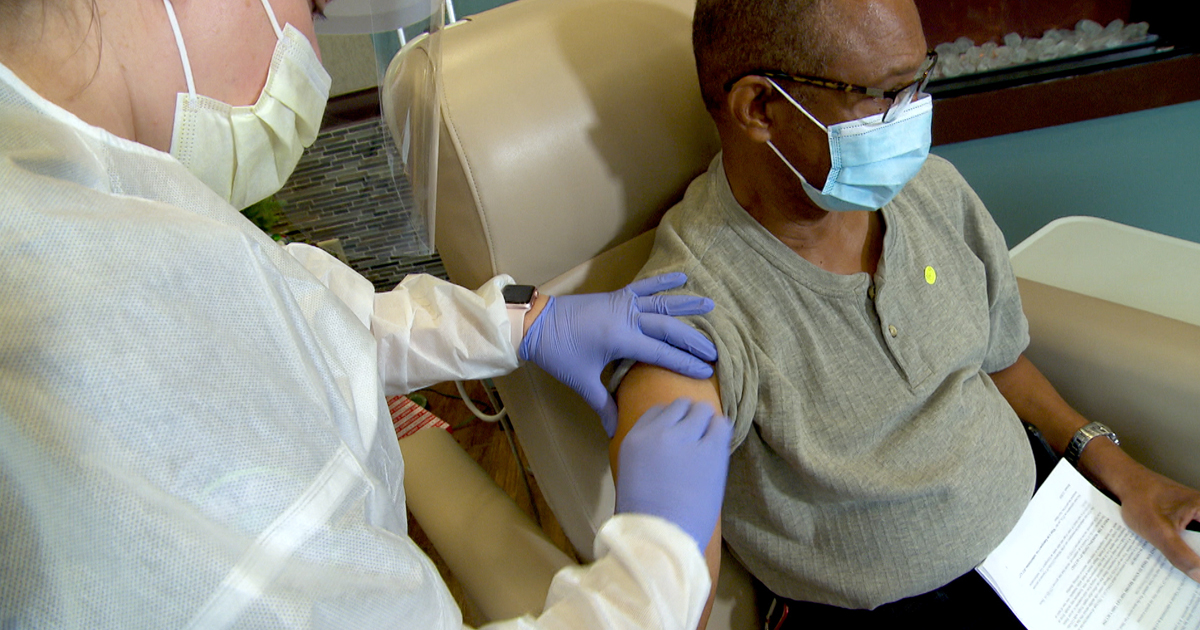
Fresenius Medical Care, the world’s leading provider of products and services for people with chronic kidney failure, is making its own dialysis clinics available for the vaccination of its patients against COVID-19. Dialysis patients are an especially high-risk group: They are on average over 65, and often have other diseases and a weakened immune system. Dialysis patients suffering from COVID-19 therefore have a significantly higher mortality risk.
Medical personnel in Fresenius Medical Care dialysis clinics regularly vaccinate patients against influenza, hepatitis B and pneumococci, and the company is already vaccinating against COVID-19 in several countries including Portugal and the United States. About 90 percent of all patients needing dialysis visit a dialysis clinic several times weekly for treatment.
In Europe specifically, Fresenius Medical Care and other dialysis providers have been vaccinating patients in Portugal under a plan, authorized by the country’s government, that ensures the proper storage and safe administration of the vaccines. The first patients were vaccinated in late January, and almost all Fresenius Medical Care patients in Portugal have since received their second and final dose of the vaccine.
“Social distancing and self-isolation are practically impossible for dialysis patients. In our dialysis clinics we can quickly and professionally vaccinate them against COVID-19 and effectively protect them,” said Dr. Katarzyna Mazur-Hofsäß, Fresenius Medical Care’s Chief Executive Officer for Europe, Middle East and Africa region. “This can save many lives. We have the infrastructure and the medical expertise and are happy to make both available to speed vaccination campaigns. We would gladly expand this successful model, in close cooperation with the health authorities, to other countries where we treat dialysis patients.”
The European Kidney Patients’ Federation, the umbrella organization for 23 national associations representing people receiving dialysis, supports Fresenius Medical Care’s offer to make its existing infrastructure available to accelerate the vaccination of dialysis patients across Europe.
Fresenius Medical Care treats more than 66,000 patients in its Europe, Middle East and Africa region, in over 800 dialysis clinics some 30 countries. The company has taken extensive measures to prevent the infection of patients within its more than 4,000 dialysis clinics worldwide since the beginning of the pandemic. These include the provision of personal protective equipment and setting up isolation units. The company is also expanding home dialysis.
This release contains forward-looking statements that are subject to various risks and uncertainties. Actual results could differ materially from those described in these forward-looking statements due to various factors, including, but not limited to, changes in business, economic and competitive conditions, legal changes, regulatory approvals, impacts related to the COVID-19 pandemic results of clinical studies, foreign exchange rate fluctuations, uncertainties in litigation or investigative proceedings, and the availability of financing. These and other risks and uncertainties are detailed in Fresenius Medical Care AG & Co. KGaA's reports filed with the U.S. Securities and Exchange Commission. Fresenius Medical Care AG & Co. KGaA does not undertake any responsibility to update the forward-looking statements in this release.
Fresenius Medical Care, the world’s leading provider of products and services for people with chronic kidney failure, announced today that the company’s Frenova division has enrolled the first participants in its new initiative to develop the largest renal-focused genomic registry in the world.
Along with this key milestone, the company also announced that Ali Gharavi, MD, Chief of the Division of Nephrology at Columbia University Irving Medical Center and Professor of Medicine at Columbia University Vagelos College of Physicians and Surgeons, will lead the project and provide scientific guidance as Principal Investigator.
As a contract clinical development services company dedicated exclusively to medicines and medical products in renal research, Frenova orchestrates studies within the clinical footprint of Fresenius Medical Care, which provides dialysis treatments to about 350,000 patients around the globe. The renal-focused genomic registry represents a new business line within Frenova, which is based in Fresenius Medical Care’s Global Medical Office.
As part of its growth strategy 2025, Fresenius Medical Care is using digital technologies and the capability to analyze huge amounts of data to develop new forms of renal therapy.
Nephrology has been under-represented in clinical research, even as rapid progress in gene sequencing and analysis has led to advances in precision medicine and individualized care in oncology, cardiology and other medical areas. Frenova’s new genomic registry will contain genetic sequencing data from chronic kidney disease patients worldwide, which will be used by researchers to improve the understanding of kidney disease. Frenova developed the registry after researchers identified the lack of a large-scale, renal-focused registry of genomic and clinical data as a major impediment to kidney disease research.
“The new Frenova registry will close this gap by generating data that adds a clinical and genetic backbone to help support and fuel scientific innovation,” said Franklin W. Maddux, MD, Global Chief Medical Officer of Fresenius Medical Care. “The evidence for genetic drivers in kidney diseases is substantial, but much larger data sets will be needed to untangle the complex interactions that lead to kidney injury. By combining clinical and genetic sequencing data from ethnically and pathologically diverse participants, this genomic and phenotypic research resource will help scientists better understand how genetic variations in patients can lead to more precise diagnoses and therapies that help improve outcomes by individualizing care.”
“Our renal-focused genomic registry will be a sustainable and comprehensive tool for kidney-focused research,” said Kurt Mussina, President of Frenova. “It will bring patients, their families, patient advocacy groups, physicians and researchers together in the common cause of improving the lives of people living with kidney disease.”
Learn more about Frenova Renal Research at www.frenova.com
Diese Mitteilung enthält zukunftsbezogene Aussagen, die verschiedenen Risiken und Unsicherheiten unterliegen. Die zukünftigen Ergebnisse können erheblich von den zurzeit erwarteten Ergebnissen abweichen, und zwar aufgrund verschiedener Risikofaktoren und Ungewissheiten wie z.B. Veränderungen der Geschäfts-, Wirtschafts- und Wettbewerbssituation, Gesetzesänderungen, behördlichen Genehmigungen, Auswirkungen der Covid-19-Pandemie, Ergebnissen klinischer Studien, Wechselkursschwankungen, Ungewissheiten bezüglich Rechtsstreitigkeiten oder Untersuchungsverfahren und die Verfügbarkeit finanzieller Mittel. Diese und weitere Risiken und Unsicherheiten sind im Detail in den Berichten der Fresenius Medical Care AG & Co. KGaA beschrieben, die bei der U.S.-amerikanischen Börsenaufsicht (U.S. Securities and Exchange Commission) eingereicht werden. Fresenius Medical Care übernimmt keinerlei Verantwortung, die in dieser Mitteilung enthaltenen zukunftsbezogenen Aussagen zu aktualisieren.
Fresenius Helios has started publishing daily figures on the occupancy rate for intensive care beds in its 86 German hospitals. The website of each hospital will report the number of COVID-19 patients in the hospital’s regular and intensive care wards. It will also publish figures from the Robert Koch Institute, Germany’s national health agency, on the number of new infections in the surrounding region. Helios’ goal is to increase transparency and facilitate a data-based assessment of the pandemic at the local level. Helios Germany currently has a total of 1,300 intensive care beds across the country and could add an additional 1,000 on short notice, in the event of a sharp increase in COVID-19 hospitalizations.
Fresenius Medical Care North America announced today that the U.S. Food and Drug Administration (FDA) has approved DELFLEX® peritoneal dialysis solutions in Biofine®, an innovative bag material. The milestone marks another important step in the company’s commitment to grow home dialysis through new and improved products. Biofine material generates less waste and is PVC-free, to the benefit of the environment. The new Biofine peritoneal dialysis solutions bag has a user-friendly design for easy storage and use, and will be produced on a new manufacturing line in the company’s Knoxville, Tennessee plant. It is expected to be made available first to a limited number of U.S. patients this fall.
As part of its reporting on quality standards, Fresenius Helios is publishing data on the length of patient stays, patient security and antibiotic use in the company’s German hospitals for the first time. Data from every Helios hospital is compiled in a total of 46 quality categories, including the frequency of surgical interventions and their results, and then published annually. The comparing of different hospitals’ statistics through the Quality Medicine Initiative yields specific, concrete improvements that can be implemented in day-to-day hospital operations. The initiative, which was jointly founded by Fresenius Helios, now includes more than 400 hospitals in Germany and Switzerland.
Diprivan® (Propofol) injection, an anesthetic, is the company’s first smart-labeled product with radio frequency identification (RFID) technology and the 20 mL vial is now available in this enhanced presentation in the U.S. The smart label enables hospitals to automatically identify, locate and manage their inventory. Fresenius Kabi expects to introduce numerous other products with RFID technology in the coming year.
Quirónsalud, the Spanish hospital group that is part of Fresenius Helios, has signed an agreement with Vincci Hotels to offer health care to guests in all accommodations in Spain. The service includes 24/7 medical assistance, either by video call, in person or by a doctor’s visit in the hotel, if necessary. This service is offered in several languages to meet the demands from international guests.
Fresenius Medical Care, the world’s leading provider of products and services for people with chronic kidney failure, today announced publication of its 2020 Global Annual Medical Report. Titled “The Power of Ideas: Ingenuity, Optimism, and the Future of Global Healthcare,” it advances the worldwide conversation about the continuing evolution of healthcare and underlines the role Fresenius Medical Care can play in transforming care for chronically ill patients.
“This year’s report focuses on the ideas, ingenuity and optimism that are transforming healthcare,” said Franklin W. Maddux, MD, Global Chief Medical Officer of Fresenius Medical Care. “We look at ways to enhance patient choice, new frontiers in connected health, the promise of artificial intelligence, and other important topics including our global response to COVID-19. Our 2020 report also shows the remarkable diversity of people behind the ideas that are helping us evolve our healthcare systems to recognize the unique lifetime journey of each kidney disease patient.”
The 2020 Global Annual Medical Report comprises 24 chapters by nearly 40 authors from across the company, representing some of Fresenius Medical Care’s best thought leadership on a wide range of topics. These also include precision medicine and genomics, cardioprotective dialysis, value-based care, and transplantation.
Some of the key chapters include:
- Building on Lessons Learned: Activating a Global Pandemic Master Plan
- The Aspirational Role of Artificial Intelligence and Advanced Analytics
- The Power of Precision: Genomics Medicine and Power of Personalization of Kidney Care
- Cardioprotective Dialysis: Improving Cardiovascular Health Through More Personalized Treatment
- Driving Sustainability and Creating Value for Patients in Global Healthcare
- Increasing Access to Transplantation: Lessons from the United States
- Clinical Performance Supports Organized Value-Based Care
- Social Care and Medical Care Become Kidney Care
The 2020 Global Annual Medical Report is published by the Global Medical Office of Fresenius Medical Care. The full report is now available online at:
https://www.freseniusmedicalcare.com/en/about-us/sustainability/medical-responsibility/
Disclaimer
This release contains forward-looking statements that are subject to various risks and uncertainties. Actual results could differ materially from those described in these forward-looking statements due to various factors, including, but not limited to, changes in business, economic and competitive conditions, legal changes, regulatory approvals, results of clinical studies, foreign exchange rate fluctuations, uncertainties in litigation or investigative proceedings, and the availability of financing. These and other risks and uncertainties are detailed in Fresenius Medical Care AG & Co. KGaA's reports filed with the U.S. Securities and Exchange Commission. Fresenius Medical Care AG & Co. KGaA does not undertake any responsibility to update the forward-looking statements in this release.
Pagination
- Previous page
- Page 8
- Next page



